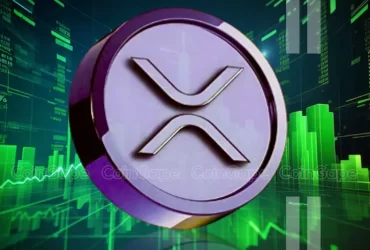Ripple, the San Francisco-based blockchain startup has recently launched its crypto custody solution for several banks and fintech players to store digital assets on behalf of their clients. This development comes as the Federal Reserve has been cracking down on several traditional banks offering custodial services to crypto firms.
Ripple Crypto Custody and Features
Ripple told CNBC that it would bring along a range of features allowing its banking and fintech clients to store digital assets through its crypto custody solution. This will be a nascent business for the firm as part of its newly formed Ripple Custody division. Last month in September, Ripple CEO Brad Garlinghouse already gave a hint for this launch.
With the launch of the Ripple Crypto custody, the firm has ensured that it meets all regulatory requirements in this process. This includes pre-configured operational and policy settings along with the integration with the Ripple XRP Ledger blockchain platform, which recently introduced key updates.
Furthermore, to maintain compliance, the crypto custody platform will monitor anti-money laundering risks along with introducing a new user-friendly and engaging interface. This is a great step by the company to diversify beyond its payment settlement business of RippleNet. Speaking to CNBC, Aaron Slettehaugh, senior vice president of products at Ripple, said:
“With new features, Ripple Custody is expanding its capabilities to better serve high-growth crypto and fintech businesses with secure and scalable digital asset custody”.
Taking on Giants Like Coinbase, Gemini
Today’s announcement is one of the first measures by the blockchain startup to consolidate its crypto custody services under its newly formed brand of Ripple custody while taking on the competition head-on with existing players like Coinbase, Gemini, etc.
Crypto custody businesses is still nascent but fastly growing in the crypto space. Today, Coinbase serves some of the top clients like BlackRock to provide Bitcoin custody for the IBIT ETF. Now, traditional banking players are also entering this with BNY Mellon securing a custodial license last month.
Custodians are essential to the crypto market, providing secure storage for private keys. Beyond safeguarding crypto, custodians assist with payments, settlements, trading, and ensuring compliance with global regulations governing digital currencies.
The Boston Consultancy Group predicts the crypto custody market to surge to $16 trillion by 2030. Ripple believes that custody is the fastest-growing area with its custodial platform already seeing 250% consumer growth this year.
The Ripple custody operates in seven countries with top clients like HSBC, Societe Generale, the Swiss arm of BBVA, and DBS as clients.
Integration with XRP Ledger
Ripple is also betting on the real-world assets (RWA) tokenization market and stated that it would extend its custody services to tokenize different RWAs like fiat, gold, oil, and real estate, by using the XRP Ledger.
Ripple announced that integrating its XRP Ledger technology will provide companies access to its native decentralized exchange. Besides, it will also allow buyers and sellers to trade various digital assets directly, without intermediaries, enabling faster transactions with lower fees.
In order to boost its crypto custody business, Ripple has been making key acquisitions. Last year it acquired Metaco, a company specializing in crypto storage and management. This year, Ripple further expanded its efforts by acquiring Standard Custody & Trust Company, another crypto custody firm.
The post Breaking: Ripple Launches Crypto Custody for Banks and Fintechs appeared first on CoinGape.




